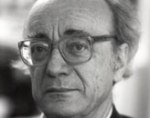What is it to be musical? You will not be so, if your eyes are fixed on the notes with anxiety and you play your piece laboriously through…. But you will be so…if you have not only music in your fingers, but also in your head and heart.
The composer Robert Schumann (1810-1856) wrote Advice to Young Musicians (Musikalische Haus- und Lebensregeln) to provide useful tips and guidelines for beginning music students. It was published in 1850 in Schumann’s journal Neue Zeitschrift für Musik (find the original German publication here). An English translation (by Henry Hugo Pierson) followed by the original German has been made available via Project Gutenberg. It is also available at imslp.org.
It’s a quick read with many thought-provoking considerations whether you’re a newcomer or an old hand, and also contains some advice that I find humorous. For example,
Play strictly in time! The playing of many a virtuoso resembles the walk of an intoxicated person. Do not take such as your model (in other words, lay off the rubato and ruby port)
From vocalists you may learn much, but do not believe all that they say.
Never help to circulate bad compositions; on the contrary, help to suppress them with earnestness. You should neither play bad compositions, nor, unless compelled, listen to them.
Don’t pull any punches there, Schumann!
Here is Wilhelm Kempff playing Schumann’s Vogel als Prophet. [Note: the video is no longer available.] Here is Schumann’s Vogel als Prophet played by Maria Joao Pires.
Those who speak French can practice in the presentation on Schumann which follows the piece. An interview with Wilhelm Kempff (in French) on Schumann can be seen here. [Video no longer available.] The Melo Classics Les Grandes Interpretes channel on YouTube has great historical musical videos of pianists, violinists, and singers (wow, Sviatoslav Richter and Dietrich Fischer-Dieskau rehearsing Hugo Wolf’s Der Feuerreiter ‘Sehet ihr am Fensterlein’.)



 “If I were not a physicist, I would probably be a musician. I often think in music. I live my daydreams in music. I see my life in terms of music … I cannot tell if I would have done any creative work of importance in music, but I do know that I get most joy in life out of my violin.”
“If I were not a physicist, I would probably be a musician. I often think in music. I live my daydreams in music. I see my life in terms of music … I cannot tell if I would have done any creative work of importance in music, but I do know that I get most joy in life out of my violin.”